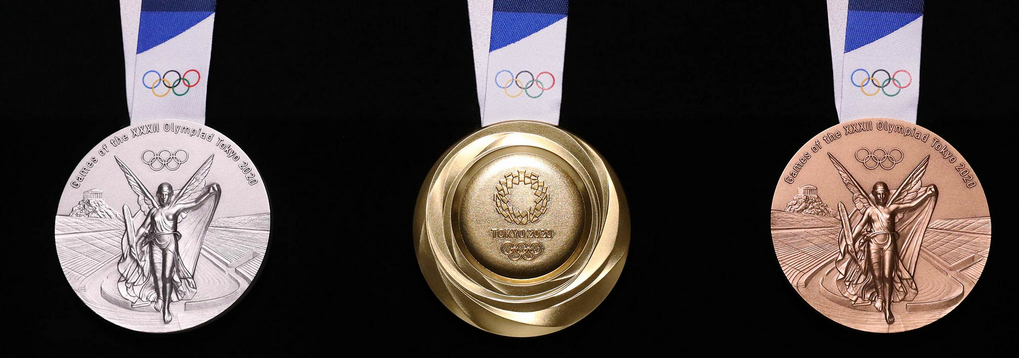
UK Sport to finish outside the corporate governance medals in Tokyo 2020, Beijing 2022 & Paris 2024?
THE published minutes of the recent UK Sport board meeting^ states, the “Board were also in agreement that the current UK Sport Vision, ‘Inspire the Nation’, captures the essence of UK Sport’s Purpose well.” The recent appointment of new Chief Executive Officer Sally Munday OBE also played to the positive mood music about prospects ^^ for re-invigorated approach to leadership and corporate governance in the UK Sport boardroom with renewed prospects for increased inclusion, diversity and future medal success outside it.
Sadly, an altogether different view of the complex set of relationships that previously and possibly currently exists between the aims, governing bodies, executives and day-to-day management of UK Sport, British Cycling and Team Sky emerged during and at the Richard Freeman medical tribunal. Questions have been raised about whether barrel maker UK Sport was complicit with the few bad apples found at British Cycling. It wasn’t so long ago that Guardian reports noted UK Sport’s in-house governance team were allegedly told way back when to go easy on British Cycling “because that is where the medals come from”. Only last week insider was quoted by the Guardian as saying, “in practice, it becomes a simple case of it sport delivers medals, UK Sport delivers the funding”.
If we rightly set aside both rights and wrongs as well as the ins and outs of the evidence or so-called authoritative hearsay, corporate governance nonetheless still appears to badly fall between the cracks whenever success beckons for sports just as it often does – to be fair - in business too. Though the sports bodies involved officially have either changed or renewed their best practice vows, it still appears to be the case that – to adapt the religious saying - corporate governance regularly takes a back seat when the devil drives. Indeed, it is often effectively ignored, whenever success on the field, pitch, track or marketplace beckons or results.
Though clearly world records, medals and great results – just like soaring turnover and profits - are a wonderful emetic to help mask the process and structural corporate governance shortcomings, they only ever do so temporarily. British cycling preached the gospel of “incremental gains” through attention to detail while taking this as carte blanche to ignore the importance of such factors in the boardroom. The equally important need for accurate/adequate record keeping, transparency and straightforward communication also fell by the wayside as the complaints and medals also stacked up. Though both qualifications and success are powerful credentials it remains the case that what we now see as the realities of management practice away from the stadiums further confirms the sports truism that what gets delivered is either coached or condoned.
Sadly, the poorly calibrated inter-relations of various governing bodies, their boards, leaders, executives management teams and their strategies continue to stain the integrity of these notable sporting successes as it also constrains their future credibility. Though positive thoroughgoing change takes a long time to work through any organization, UK Sport could take – for example - the simple step to review the current makeup of their supervisory board. Though already compliant with best practice of three-year service term limits, only two members of the ten-person UK Sport board (that supervises the UK Sport management team) are drawn from outside ‘sport’ and, judged from the official website, only one member is formally designated an “independent” board member (albeit a “senior” one). Despite questions being asked of its corporate governance, it appears UK Sport continues to lack proper independence at board level. With Tokyo 2020, Beijing 2022 and Paris 2024 ahead this is a serious matter in need of greater transparency and urgency to resolve.
My book The Independent Director states that the minimum six key attributes of ‘good’ boards are:
Independence
Integrity
Listening skills
Cultural flexibility
Professionalism
Entrepreneurialism
There are also various simple practical questions all UK board members need to urgently ask themselves. Doing so should help kick start the required change needed in mindset at board level in any organisation to help to mitigate as well as prevent perception or reputation issues and scandals in the future:
Do we set the right tone from the top?
Do we have good measures of culture?
Do the voices of alternative opinion (or whistle-blowers) ring loudly at the board table?
Do we supervise and manage our audit trails sufficiently?
Notes
^ May 19 2019
^^ Upon her appointment Munday commented, “I know from personal experience that the UK Sport team have played such a key role in supporting the National Governing Bodies and their athletes in what has been an unprecedented period of success both in terms of medals and bringing major sporting events to this country. I am extremely excited to join UK Sport at this particular time, not only in the lead in to Tokyo 2020 but also the opportunity to implement the new UK Sport strategy leading to Beijing 2022 and Paris 2024. I love the ambition of the new strategy; both in continuing to support our athletes to light up the stage to make our nation proud, but also realising the social and community impact that is possible through our Olympic and Paralympic role models and the work that they and our National Governing Bodies can do.”
image credit: Olympic.org
